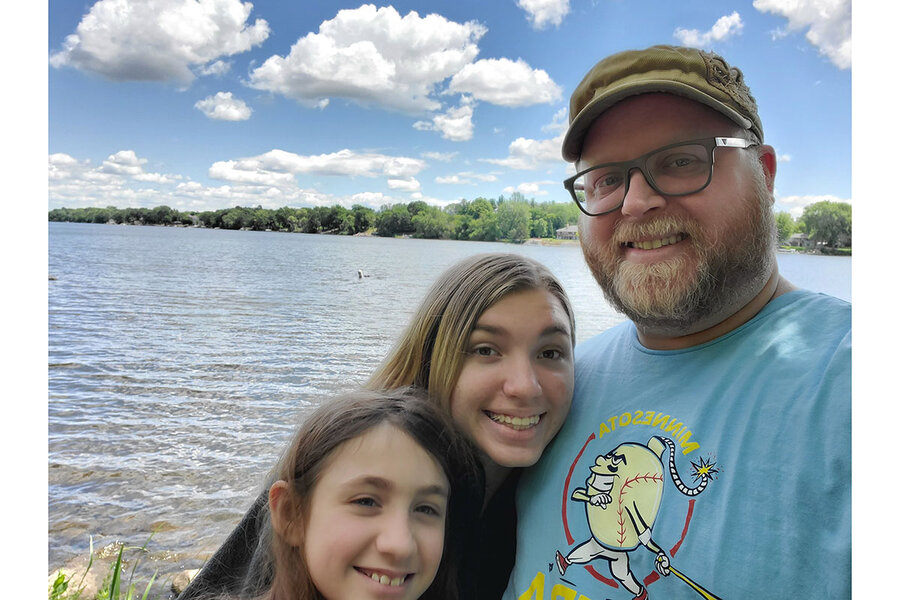
COVID-19 will leave its mark for years to come, especially for children who lose a parent. Will the crisis prompt reforms in children’s welfare that family advocates say are long overdue?
Charlee Roos loved the “buddyship days” she shared with her father when she was a kid. He would take her out for Mickey Mouse pancakes, attend all her soccer games, and go to her dance recitals, “even though he didn’t really get dance competitions.”
He was her best friend, Ms. Roos says.
Two days before Christmas, Kyle Roos died of COVID-19. In the last days, when he couldn’t speak and asked family to be his voice, she peppered nurses and doctors with terminology most high school sophomores barely grasp – knowledge her father, a well-loved pharmacist in their hometown in Minnesota, imparted to her growing up.
Now, she continues to be his voice – to her little sister, Layla. That means showing up at the hockey rink, where Ms. Roos’ father and sister shared a love of the ice. “I’ve tried to go to every single one of her hockey games and support her that way,” she says.
And she aims to be his steady presence, in all the ways her 10-year-old sister needs.
“My mom and I have really tried to encourage her to talk about my dad. We’ll go through pictures of him and show her pictures when he was younger and tell her stories about him,” she says. “I think she feels a little alone in all of this.”










